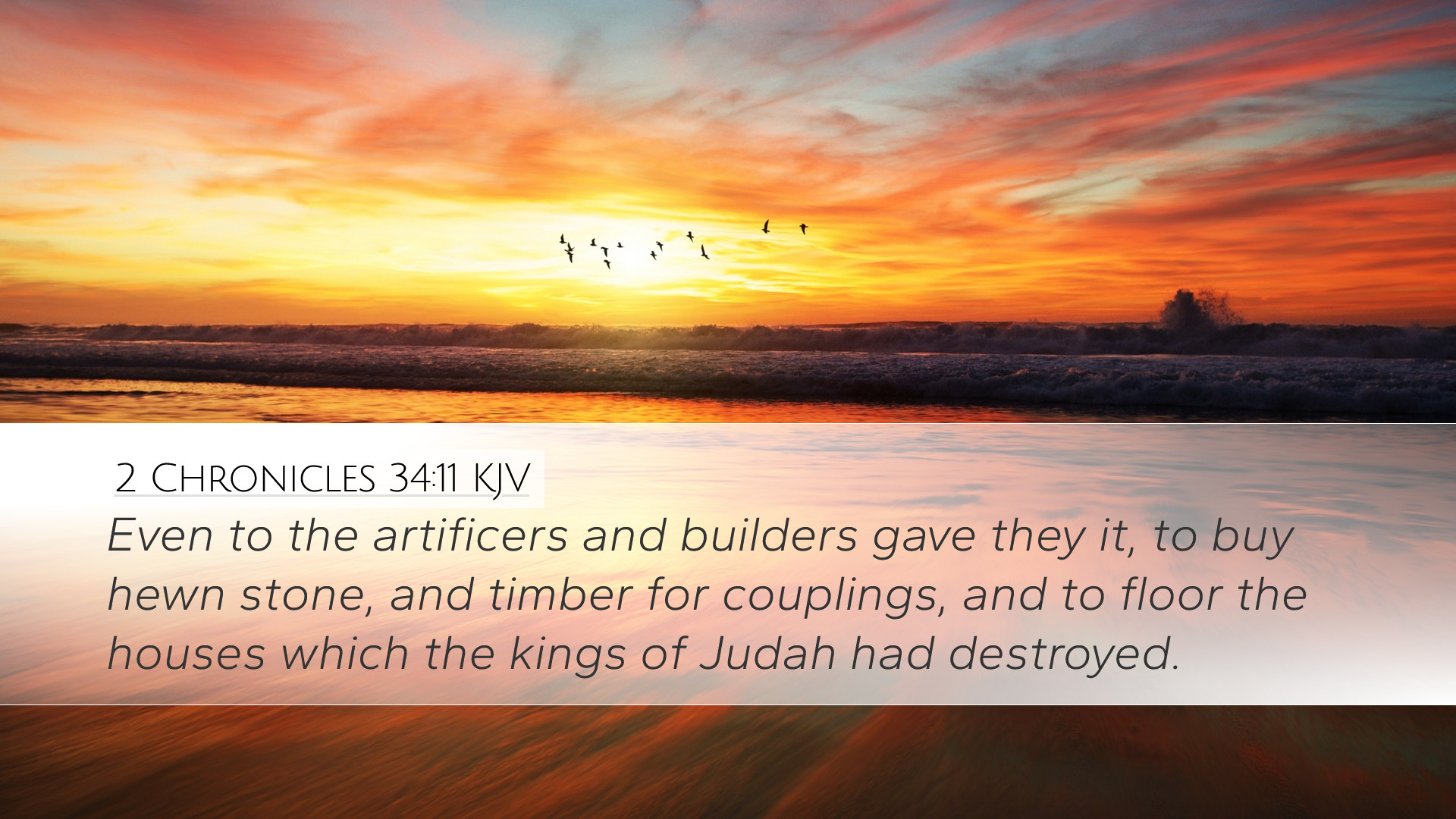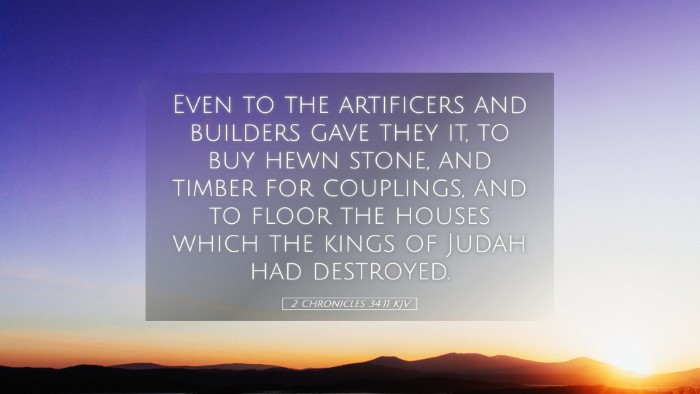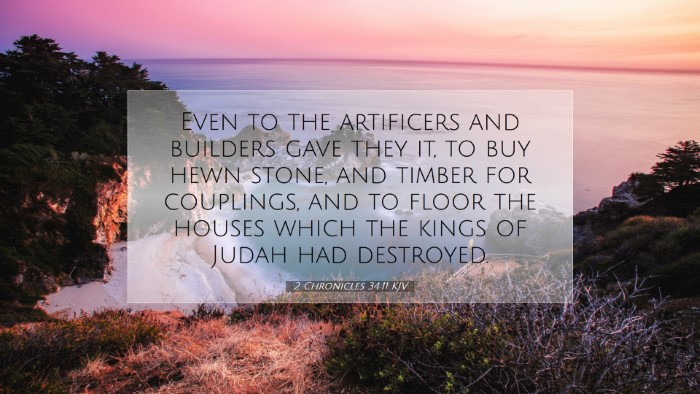Commentary on 2 Chronicles 34:11
Verse Reference: 2 Chronicles 34:11 - "And they gave that money to the workmen and the builders who were repairing the temple of the Lord."
Introduction
The passage of 2 Chronicles 34:11 captures a significant moment in the history of Judah, particularly under the reign of King Josiah. It illustrates the themes of restoration, dedicated service, and the corporate efforts of the people of God in the work of the temple. This commentary synthesizes insights from esteemed public domain sources, including Matthew Henry, Albert Barnes, and Adam Clarke, providing a rich landscape for understanding the implications of this text for pastors, students, theologians, and Bible scholars.
Historical Context
To grasp the full weight of this verse, one must consider its historical backdrop. King Josiah ascended to the throne at a young age and initiated a comprehensive reform aimed at restoring true worship to Yahweh. During his reign, the temple fell into disrepair due to the negligence fostered under previous kings. The discovery of the Book of the Law catalyzed a profound spiritual awakening (2 Kings 22:8-11) and led to renewed efforts for temple restoration.
Josiah’s Reform
Matthew Henry notes that Josiah's earnest desire to seek the Lord prompted him to prioritize the temple's condition. It served as both a literal and figurative representation of the covenant relationship between God and His people. As such, returning to the temple in its full glory symbolized a return to God.
Financial Stewardship in Ministry
In 2 Chronicles 34:11, the act of giving money to the workmen signifies a collective acknowledgment of responsibility among the people. The construction and maintenance of God’s house are seen as vital undertakings, warranting proper financial resources to accomplish the task effectively.
Insights from Albert Barnes
Barnes emphasizes that the act of providing funds for the builders demonstrates the faithfulness of the people. This reflects a desire for God's dwelling place to not only exist but to flourish. It exemplifies a principle of stewardship within the church community—funding that which is necessary for spiritual growth and physical upkeep, thus fostering an environment conducive to worship.
The Role of Laborers
The verse explicitly mentions "workmen" and "builders," which highlights the human component essential in God's work. These laborers not only perform practical work but symbolize the commitment to God's service.
Adam Clarke's Perspective
Clarke draws attention to the dedication required by these individuals to rebuild; their work was not merely physical but spiritual. By repairing the temple, they were reinstating a central place for the community to engage with God. Their labor bore testimony to their faith and their covenant with the Almighty.
Application for Today’s Church
The implications of this narrative resonate powerfully with contemporary congregations. The church today, much like in Josiah's time, faces the challenge of maintaining and cultivating spaces where believers can come together to worship, learn, and grow.
Corporate Responsibility
In the modern context, the passage calls for a sense of corporate responsibility among congregants. Just as the people of Judah pooled their resources for the upkeep of the temple, so too should modern believers invest in their communities and churches.
The Spiritual Symbolism of Repair
Moreover, the act of repairing the temple can serve as a metaphor for spiritual renewal. Pastors and church leaders can utilize this narrative to inspire congregants towards a broader understanding of restoration not just of physical spaces but also of relationships, faith, and community spirit.
Conclusion
2 Chronicles 34:11 is a profound testament to the collective efforts of God’s people in restoring His dwelling place. By weaving together insights from Matthew Henry, Albert Barnes, and Adam Clarke, we appreciate the exemplary commitment shown by the people of Judah in their time. This biblical account is not merely historical; it is a clarion call for modern discipleship, urging the faithful to invest time, resources, and energy into the work of God’s kingdom today.


